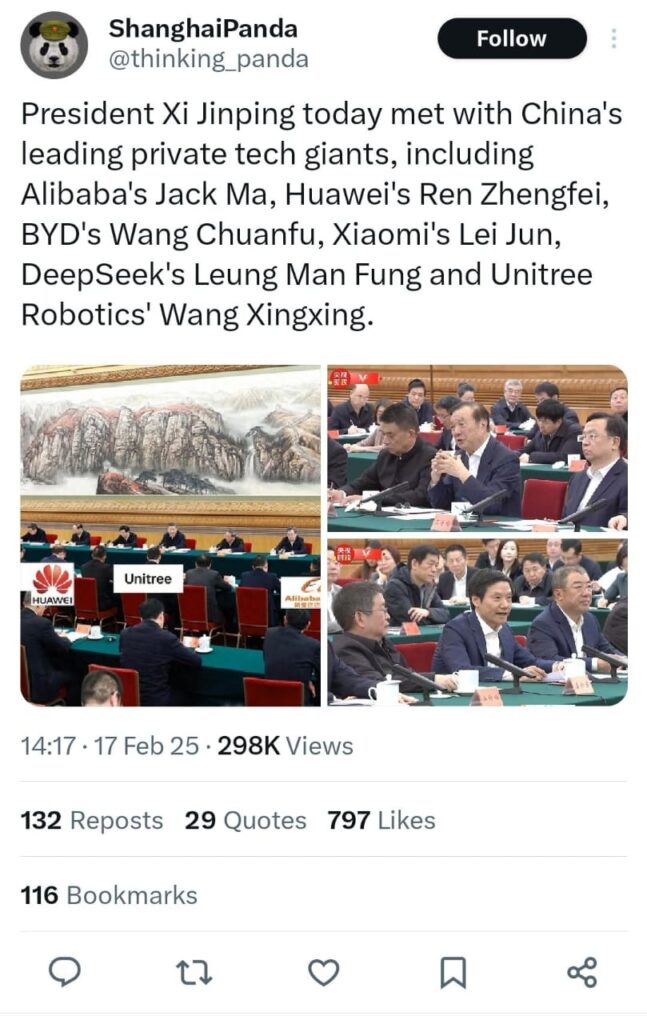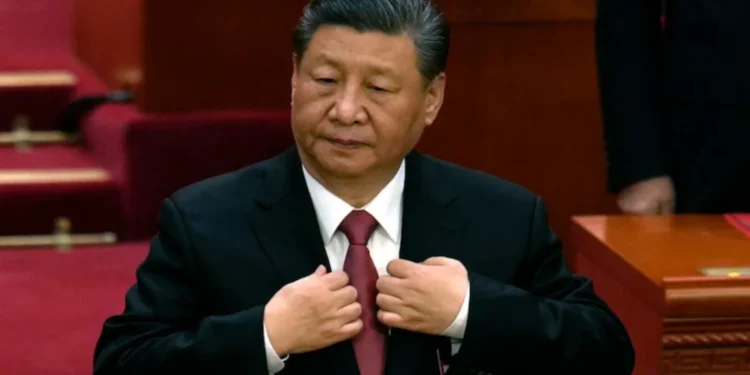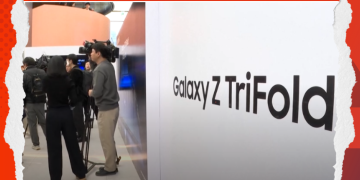As the world grapples with increased economic competition and the announcement of reciprocal tariffs by former U.S. President Donald Trump, China’s top tech leaders have gathered to meet President Xi Jinping in a high-profile discussion on innovation and economic strategy.

The meeting, as highlighted by ShanghaiPanda on X, brought together some of China’s biggest private tech entrepreneurs, including:
- Jack Ma (Alibaba)
- Ren Zhengfei (Huawei)
- Wang Chuanfu (BYD)
- Lei Jun (Xiaomi)
- Leung Man Fung (DeepSeek)
- Wang Xingxing (Unitree Robotics)
This engagement signals China’s ongoing commitment to technological advancement and self-sufficiency, particularly at a time when global economic policies are shifting.

The Role of China’s Tech Giants in Economic Strategy
According to ShanghaiPanda, this meeting focused on strengthening collaboration between China’s government and private enterprises in sectors such as:
- AI and cloud computing (Huawei)
- Electric vehicles and battery technology (BYD)
- Robotics and automation (Unitree Robotics)
- Semiconductors and chip production (Shanghai Weir Semiconductor)
China’s renewed focus on innovation-driven economic growth comes amid challenges posed by U.S.-led restrictions on semiconductor exports and increased tariffs targeting Chinese goods.
Trump’s Reciprocal Tariffs and China’s Response
As the global economic landscape shifts, China has been accelerating its focus on domestic innovation, emphasizing self-reliance in key industries such as semiconductors, AI, and electric mobility. This strategic push comes amid evolving trade policies and increasing competition in the global market.
What This Means for Global Tech and Trade
- China is fostering deeper ties between the government and its private tech sector to reduce dependency on foreign technologies.
- The U.S.-China trade war is far from over, and new economic policies from Washington could shape the next phase of global trade.
- Chinese companies are ramping up AI, EVs, and semiconductor investments to outpace Western competitors.
The Bigger Picture
As tensions rise, China’s strategic realignment of its technology sector could reshape the global economic landscape. With AI, EVs, and semiconductors as its key battlegrounds, China’s private sector leaders are now playing a pivotal role in national economic policy.
With world leaders watching closely, China’s next moves in innovation and trade will set the tone for the future of global technology dominance.
Source: ShanghaiPanda on X














